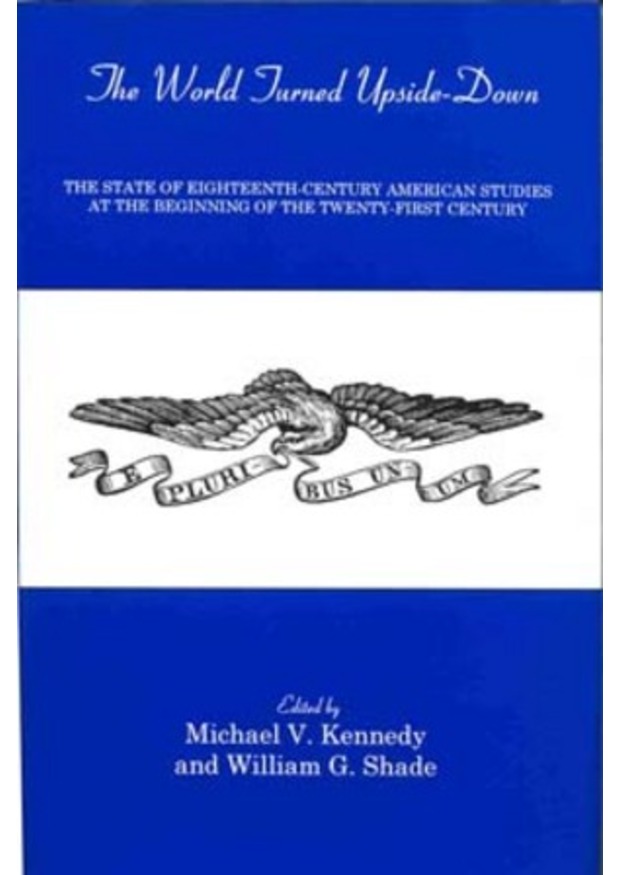The State of Eighteenth-Century American Studies at the Beginning of the Twenty-First Century
The World Turned Upside-Down is based on a series of Lawrence Henry Gipson lectures presented at Lehigh University from the late 1980s through the early 1990s. A collection of essays by a veritable Who's Who of scholars, The World Turned Upside-Down covers a broad spectrum of American history, following both the inspiration and the vision of Professor Gipson, who saw American history as part of the panorama of world history, not isolated in a vacuum.
The generous endowment of the Lawrence Henry Gipson Institute in Bethlehem, Pennsylvania, allows for the invitation of distinguished scholars from a wide variety of disciplines, including history, political science, and American literature, and an expansive geographic area encompassing North, South and Central America and the Caribbean, who take part in lectures and symposia covering all aspects of colonial American history.
The historiographical studies of Native Americans, African/African-American cultures, and the reintegration of women into history are thoughtfully examined by Daniel K. Richter, David Hackett Fischer, and Carol R. Berkin respectively. Amy Turner Bushnell offers a new insight into Spain's empire-building in the Americas, as militarism, politics and religion combine in a "conquest by contract." Studies of rural and urban environments are given refreshing twists by Richard L. Bushman in "The Place of the Eighteenth Century in American Agriculture," and Christine Daniels in "No Towns of Any Consequence: The Lost Urban History of the Colonial Chesapeake." David D. Hall rethinks the centrality of "popular" religion in British North America, while Judith A. McGaw deals with the more secular in her essay encouraging the incorporation of material culture through technological development in the American past. Gerald F. Moran and Maris A. Vinovskis trace the history of literacy and education in the colonial period, and Philip F. Gura proposes a new framework for the study of literary history. The discussion of civic humanism by political scientists is carefully deconstructed by Asher Horowitz and Richard K. Matthews. William G. Shade, long-time member of the Gipson Institute, and former Director, brings all of this together in a prologue that addresses the current state of American Studies, and the epilogue by Russell R. Menard offers an optimistic view on the possibilities for revitalizing studies of early America.
All in all this volume examines how American Studies has developed over time, and projects where the subject may be headed in the new century.













